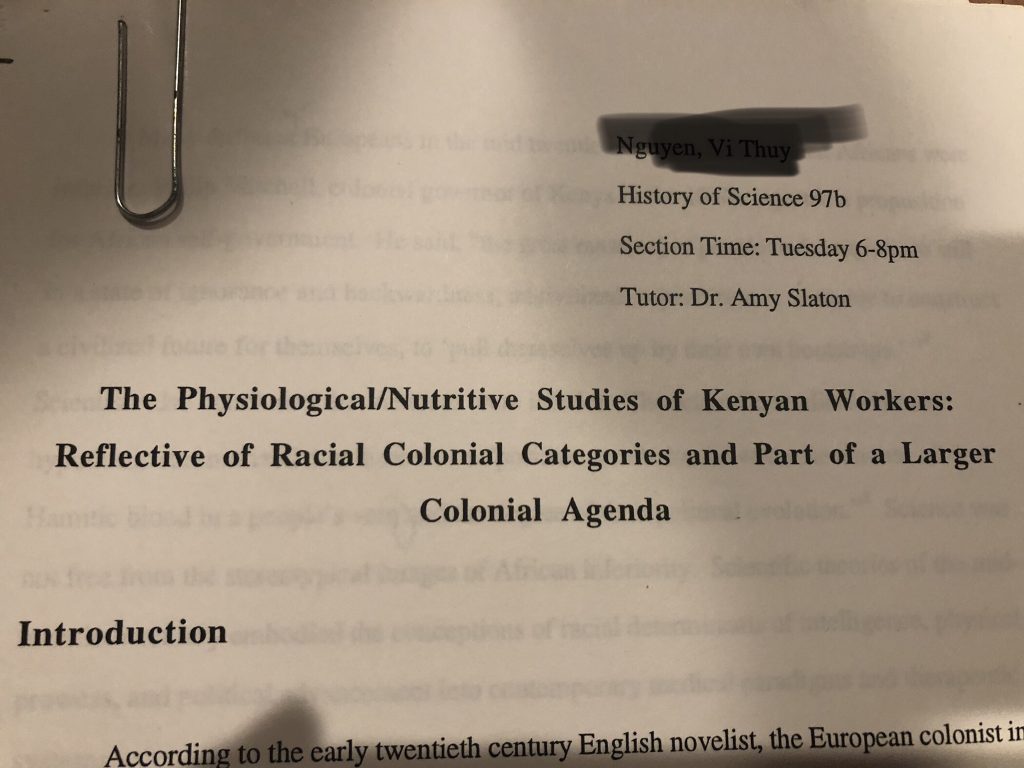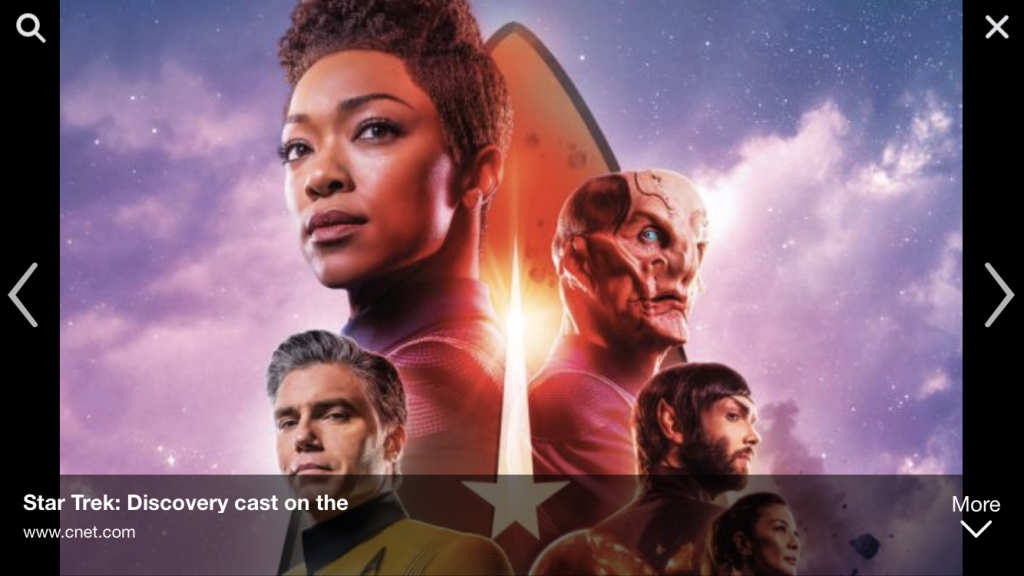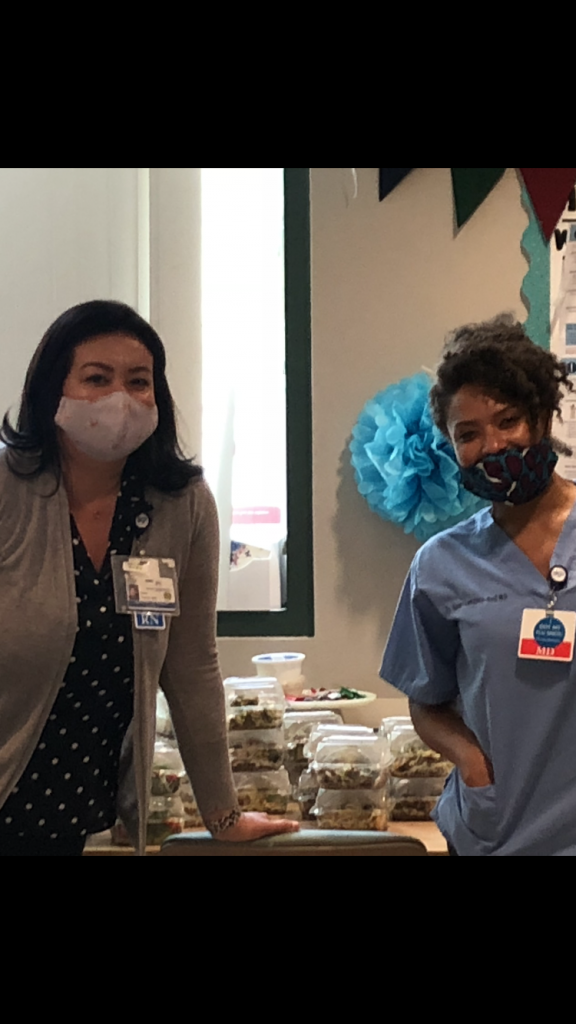#blacklivesmatter – the stain of slavery, colonialism, apartheid extends to science


June 5, 2020
by drplasticpicker
During my undergraduate years, I studied the History of Science. I had always loved history and enjoyed writing, and it was also a course of study that allowed me to easily complete my premedical requirements. I sometimes think back and wonder if I should have studied ecology or East Asian studies. I had wanted to take more Asian languages during those years, but found it difficult to fit them into my course load. But now looking back, I’m glad I studied History of Science. I was able to take very interesting classes. I dug out my term paper from my sophomore year tutorial, which I wrote at 19 years of age. My instructor was a young woman and pregnant at the time. She was one of the best teachers I had in college, and reminded me to always watch my grammer.
Excerpts from my paper.
According to the early twentieth century English novelist, the European colonist in Kenya was the “lone settler” battling the forces of the “Dark Continent.” In the confrontation “between civiliation and savagery, ” ” the white settler contended with the ‘tight-fisted’ Jew, the ‘ludicrous’ Indian ‘Babu’ and the ‘stupid, lazy, . . . and ‘ungrateful’ African. In CJD Duder’s “Love and the Lions: Images of White Settlement in Kenya in Popular Fiction, 1919-1939” which is a analysis of Kenyan popular literature, she recounts the images of the ‘pioneering’ white settler and the ‘unapologetic racist’ portrayal of the Jew, the Indian, and the African. The African was ‘sexually depraved,’ unchristrian for revering ‘the clay gods of his forefathers,’ and ‘profoundly alien and frighteninig.’ Popular fiction ridiculed even those Africans who largely adopted European languages, dress and customs. Their attempts to emulate European colonist were ‘Africans trying to assimilate the trappings of European civilization’ only to fail in ‘grasping its essentials.’ Europeanized Africans still kept the primitive characteristics of the dark man thrrough ‘education merely acquired the worse vices of the white man.’ The African, by virtue of his race and inherent inferiority, was seen during that time as a poor mimic of European civiliation.
Many Europeans in the mid twentieth century believed that Africans were inferior. Philip Mitchel, colonial governor of Kenya in the 1940s, rejected a proposition for African self-government. He said, “the great mass[es] of people in the region are still in a state of ignorance and backwardness, uncivilized, superstitious . . . unalbe to construct a civilized future for themselves, to ‘pull themselves up by their own bootstraps.”
Scientists also conlcuded that Africans were inferior. The scientific-medical Hamitic hypothesis summarized that there were a “positive correlation between the amount of Hamitic blood in a people’s beins and the degree of their political evolution.” Science was not free from the sterotypical images of African inferiority. Scientific theories of the mid-twentieth century embodied the conceptions of racial determinants of intelligence, physical prowness, and political advancement into contemporary medical paradigms and therapeutic systems.
Popular fiction and scientific surveys drew strikingly similar conclusions about an African’s innate inferiority. Popular fiction appears in serial form in newspapers and in complete book edicitons, spanning the literary genres of romance and political sature and were sold in Britain and Kenya reaching a large audience. Popular fiction’s images of “Africans entangled in a world of supersitution and witchcraft” resulted in racially divisive sterotypes similar to those in reputable scientific reports. The African Labour Efficiency Survey (1949) published by the British Colonial office was one such report. The African Labour Efficiency Survey (1949) scientific and sociological content limited its readership to a largely erudite audience. Nevertheless, the report’s conclusions that an African had a ‘limited ability . . . to handle tools,’ ‘an aptitude for imitation,’ and a ‘mentality’ requiring an education with a ‘touch of hardness and thoroughness about it’ echo the African racial sterotypes in popular fiction, colonial government, and outdated scientific theories of “Hamitic Blood,” The parallels betweent the conclusions of scientist and lay writers, who worked in different fields and who wrote for different audiences, raises questions about their effect on each other. Were the English colonial conceptions of African inferiority founded on science’s racial construction of Africans or was science a validating mechanism for already present racial sterotypes?
Warwick Anderson, historian of colonial science, wrote “The recognition that even the most formally structured and technical knowledge may be implicated in colonial approbation and acquisition is long overdue. As yet, the technial contemporary laboratory literature . . . has evaded the scrutiny of the critics of colonialism.”
Britains colonial “approbation and acquisition” of Kenya in the mid twentieth century was primary economic. This paper will focus on a close-reading, analysis, and historical contextualization of African Labour Efficiency Survey (1949) ot not only address how and to what extent colonial science affected popular opinion and popular opinion affected colonial science, but whether scientific or “scientized” racism was a justification for economic exploitation.”
Looking back at the introduction of this paper, I now realize that this term paper influenced later how I would practice medicine. I remember presenting the paper at a small student conference, and keeping it on my resume under publications for years. When I sit at pediatric quality meetings and we discuss vaccine rates and health outcomes or even when we discuss future hires, it’s always amazing to me how phyisicans and nurses forget about the social determinants of health, the history of colonialism and slavery that color even when we decide seemingly mundane things in our department. Do we open a subspeciality clinic is a more “underserved” clinic? Do we hire this individual versus that indivual? I have heard the word “lazy” and “work-ethic” and “remember xx person” who was a person of color who did not do well in the department, and tinges of colonial language even now in Southern California 80 years later.
Dr. Plastic Picker is far from perfect. But I have actively been my entire life anti-racist. I have worked to recruit, hire and mentor latina and black pediatricians. I have worked to reduce health inequities by focusing on pediatric asthma, pediatric vaccine rates and ensuring quality of care. It is a victory that we will never be recognized for, but I find pride every day that the large clinic that I have practiced for over a decade actually serves the poorest and is the most racially diverse part of our community. Yet we have some of the highest asthma control numbers, vaccines rates and best health outcomes. I have sat at meetings and others who practice in affluent areas will say, “Oh it’s because your patients always say ‘yes doctora’ ” or some other racially tinged remark. I usually don’t respond and just nod my head, but continue to fight for resources to be equally allocated for my patients. Yet I am often sad in knowing that resources continue to flow to the more affluent area. This is very much why I stay in middle management to advcoate for resources for my clinic.
I made a statement of my personal facebook and also in Dr. Plastic Picker Instagram at the beginning of the demonstrations for racial justice in support of #blacklivesmatter. I will repost here.
#blacklivesmatter I do not condone violence. I do not condone destruction of property. I did not understand why #blacklivesmatter unti l became a pediatrician. We grew up in what I thought was a little racial utopia in San Diego in the 1990s. There were a few black families and we were the one of few Vietnamese families in Bonita back then. I thought we were all happy. My family is the model of all model minority families. Then I became a pediatrician. I see all the babies that come into this world. Parents all have the same questions. Babies all have the same issues. Diaper rashes, colic, everyone obsesses over their babies poop. But when the babies I started taking care of since birth reached about 4-5, I learned something viscerally. I saw that those little black boys that had the same issues as everyone else, had different responses from the world. They were being labeled as ADHD, slow, disruptive but they were no different than all the other kids. One father who was a large quiet black man who moved to suburban Eastlake to raise his family away from his central LA upbringing, brought his son (my patient) who I have had since he was born in when he was 5 years old. And this little also quiet black boy had BRUISES. He had bruises because a little kid at school was picking on him, and his father had told him he could never as a black boy fight back. I had to see if for my own eyes. Have you ever had to tell your son that? I have another family that I grew close too, the mother is from SD and father from Detroit and they are both black. This father had the same love that any father has for his partner, and those two little black babies that they made. He asked me lots of vaccine questions, and he questioned a lot of things. But he believed me because at that point I had been a pediatrician long enough that I had not stopped seeing color – but really started seeing people fully with their color but also the amazing variations that we all have. He vaccinated his two black boys fully because he said he believed me, this random Vietnamese pediatrician who grew up in Chula Vista who went to Harvard. He would tell me to read Malcom X which I still haven’t. But what I remember about him, is that he and his partner loved each other so much. I love romance novels and have read probably thousands. They loved each other so much. And they were not married, due to all the various social pressures/economic inequalities/political forces in our country. I know because I am noisy and I ask why aren’t people married when they have babies together but pretty much function like they are married. But if ever two people were loyal and faithful to eachother, this young couple was. They both worked hard at their jobs, and she is from a middle class family. But the father was a black man from Detroit, and he was MURDERED. My two patients who I have taken care from birth, whose father showed up at every single appointment that he could, who fully vaccinated his kids because I was able to convince him I was not trying to replicate the Tuskekee Syphillis Trials, was MURDERED just because he went home to visit his family. He was not in a gang. And every time I see those two boys, I think about this young father that will not get to see his two boys. In my own way, I am trying to make the world a better place for everyone and if we don’t save the world from plastic – no one is going to be able to live on this planet. But I just wanted to say this piece so that I have it on record. There is a great hurt in this country. All that rascist rhetoric being thrown around has hurt someone. XXX recently changed her facebook profile and she is someone I admire a lot. And it is true, if you are the mother of a black boy – this world is a dangerous place for them. And it was not until I became a pediatrician and all those babies (black included) belong to me too. Those little babies lives matter and until you understand the fear of a mother of a black boy, than you haven’t truly gotten to know someone who is in pain.
Above is the picture also of the hero of Star Trek Discovery, Michael Burnham. She is a black woman who is raised on Vulcan and is Spock’s sister. She is the first black character that I have followed avidly on Star Trek. I became drawn to her struggle to reconcile her human nature and her Vulcan unbringing. The strength of her character is her struggle and complex relationship with Captain Philippa Georgiou who is played by Michelle Yeoh. She also endures the loss of her parents. Michael loses her mother again when her mother is revealed as the Red Angel who continues to try to time travel back to change history and save Michael. Michael Burnham emerges at the hero in multiple parrallel universes and is not defined by her male romatic interest.
It is all related, #blacklivesmatter, the stain of colonialism, and the fight for health equity including for our black patients. Medicine must remember that we have not been immune and we are an institution that has perpetuated trauma on black bodies by not allocating appropriate resources, not working hard enough to reduce health disparities and that we do not have enough black representation among physicians. Patients deserve to have a choice about what kind of doctor they see. And a black family asked me why they could not see a black doctor, and they were right to be upset.
Below is a picture of two of my most favorite people in the world. Dr. Naomi Lawrence Reid and RN Plastic Picker. Dr. Lawrence-Reid reminds me of Michael Burnham, the human raised on Vulcan. I knew her and adored her before I knew Michael Burnham from the Star Trek Discovery. She has taught me a lot, just by being who she is and living life with passion with conviction and being hands down one of the best pediatricians I know. I never thought of her as particularly a black physician, but as Naomi who is probably black. Honestly you never know as everyone is mixed in our community. Maybe she is Jewish too or Navaho or Irish? Just like with Michael Burnham, I think of her as a fellow human in a world of Klingons, Romulans and alternative univere Terrans.
Well I am glad to live on this Minshara-class planet with the two humans below. And when the Vulcans arrive which is predicted to Stardate 2063 https://drplasticpicker.com/there-is-no-planet-b-im-staying-put-and-committed-to-my-here-thats-why-i-pick-up-plastic/, I hope we have addressed our racial issues. Because we will have to confront our interspecies issues soon.

2 thoughts on “#blacklivesmatter – the stain of slavery, colonialism, apartheid extends to science”
-
Pingback: May 2020 – Plastic Picking Round Up – Dr. Plastic Picker
-
Pingback: 6-10-20 Five Reasons to Be Hopeful this Wednesday – Dr. Plastic Picker
